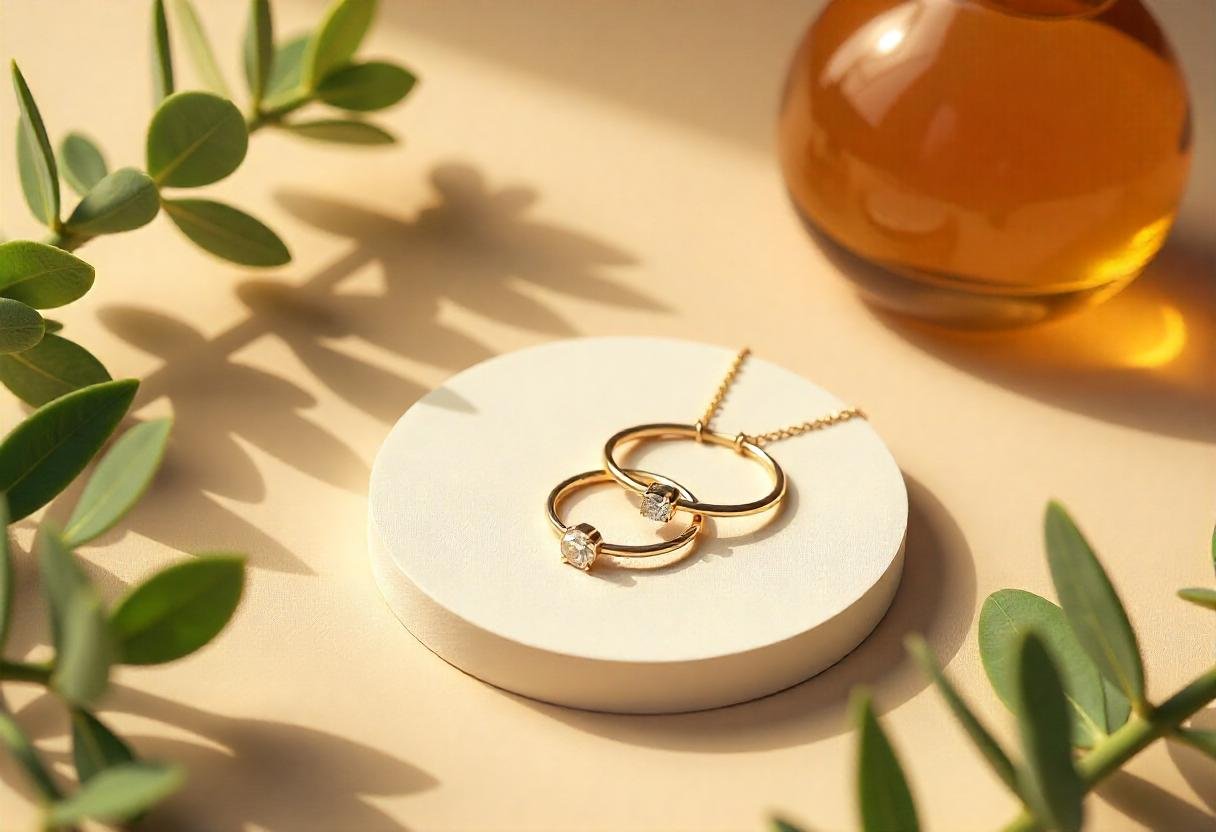Introduction
In 2025, the jewelry industry is undergoing a transformative shift, reflecting a broader global movement toward sustainability and ethical consumerism. Today’s shoppers are no longer content with aesthetic appeal alone; they demand transparency, responsibility, and a connection to their values. Sustainable jewelry has emerged as a shining example of this shift, merging timeless beauty with mindful practices.
This guide explores the trends, materials, and considerations shaping the sustainable jewelry market in 2025, offering readers valuable insights into how they can make informed, ethical, and stylish choices.
The Growing Appeal of Sustainable Jewelry
Sustainable jewelry isn’t just a niche anymore; it’s a movement. By combining ethical sourcing, innovative craftsmanship, and eco-friendly materials, sustainable jewelry appeals to both the conscious consumer and the trendsetter. As environmental concerns dominate public discourse, wearing jewelry made responsibly offers a way to make a statement that’s both personal and impactful.
Why It Matters
Environmental Stewardship: Sustainable jewelry minimizes harm to the planet by reducing mining, waste, and carbon emissions.
Ethical Labor Practices: Supporting fair wages and humane working conditions for artisans and miners.
Unique Value: Each piece tells a story, making it a cherished addition to your collection.
Key Trends in Sustainable Jewelry for 2025
1. Ethical Materials: Pioneering Change
Sustainable jewelry brands are pushing boundaries with innovative materials:
Recycled Metals: Recycling gold, silver, and aluminum reduces the need for mining and creates stunning, eco-friendly designs.
Lab-Grown Diamonds: Offering identical brilliance to natural diamonds without the environmental toll of traditional mining.
Fairtrade Gold and Silver: Ensuring fair wages and safer conditions for miners while minimizing environmental impact.
Alternative Gemstones: Organic gems like moissanite and lab-created sapphires are gaining traction for their beauty and ethical sourcing.
For an in-depth exploration of these materials, check out Exploring Sustainable Jewelry Materials: A Guide for the Mindful Minimalist.
2. Minimalist and Timeless Designs: Less Is More
The mantra for 2025 is simplicity with purpose. Minimalist jewelry remains a dominant trend, favoring clean lines and versatile pieces that complement any outfit.
Versatile Pieces: Designs that transition effortlessly from day to night.
Focus on Durability: Long-lasting craftsmanship reduces waste and promotes sustainable consumption.
Layering and Mixing: Stackable rings and necklaces offer endless combinations for personal expression. Learn more at Mastering the Art of Mixing and Matching Metals in Your Jewelry.
3. Transparency and Traceability
Transparency is no longer optional—it’s expected.
Supply Chain Visibility: Consumers demand to know where materials come from and under what conditions they are processed.
Blockchain in Jewelry: Blockchain technology is being adopted to provide an immutable record of a piece’s journey, from mine to market.
Brand Accountability: Companies that openly share their practices build trust and foster loyalty.
4. Personalization and Customization
In a world of mass production, personalized jewelry is a beacon of individuality.
Custom Creations: Unique pieces designed to reflect personal stories and milestones.
Engravings and Symbols: Adding personal touches like initials, dates, or symbols to jewelry.
Made-to-Order: Reducing waste by creating pieces only after they’re purchased.
5. Technological Integration
Technology is shaping the future of sustainable jewelry in exciting ways:
3D Printing: Reducing waste by crafting precise designs with minimal material usage.
Augmented Reality (AR): Allowing customers to virtually try on jewelry before purchasing.
Sustainable Packaging: Innovations in biodegradable and reusable packaging enhance the sustainability of every purchase.
The Benefits of Choosing Sustainable Jewelry
Environmental Impact:
Reduces reliance on harmful mining practices.
Supports recycling and reuse of precious materials.
Lowers carbon emissions associated with production.
Social Responsibility:
Promotes fair wages and ethical treatment of workers.
Encourages local craftsmanship and traditional techniques.
Unique and Meaningful Pieces:
Offers personalized options that align with individual values.
Reduces the prevalence of mass-produced, impersonal designs.
Timeless Design:
Ensures longevity, reducing the need for frequent replacements.
Adds a touch of elegance that transcends fleeting trends.
How to Choose Sustainable Jewelry
Research Brands: Look for companies that are transparent about their materials and processes.
Ask Questions: Don’t hesitate to inquire about a brand’s sustainability certifications and ethical commitments.
Consider Certifications:
Fairtrade Gold: Supports fair wages and better working conditions.
Responsible Jewelry Council (RJC): Ensures compliance with ethical standards.
Support Small Businesses: Smaller brands often prioritize sustainability and innovative designs.
Explore Reputable Guides: Use resources like Mastering the Art of Mixing and Matching Metals in Your Jewelry for tips on building a sustainable collection.
Conclusion
The rise of sustainable jewelry reflects a broader cultural shift toward conscious living. By embracing ethical materials, minimalist designs, and innovative practices, the jewelry industry is paving the way for a more sustainable future. For consumers, each purchase is an opportunity to make a meaningful impact on the environment and society.
Choosing sustainable jewelry is not just about following a trend; it’s about committing to a lifestyle that values beauty, ethics, and longevity. As you explore this vibrant sector, remember that every piece you wear can tell a story—one of responsibility, care, and timeless elegance.
What makes jewelry sustainable, and how can I identify truly eco-friendly pieces?
Sustainable jewelry is made using ethical and eco-friendly practices that minimize environmental impact and ensure fair labor conditions. Key features include the use of recycled metals, lab-grown or ethically sourced gemstones, and adherence to certifications like Fairtrade Gold or the Responsible Jewelry Council (RJC). To identify truly eco-friendly pieces, look for brands that provide transparency about their materials and production processes, certifications, and clear commitments to sustainability. Supporting small, independent brands focused on ethical craftsmanship can also ensure your jewelry is sustainable.

